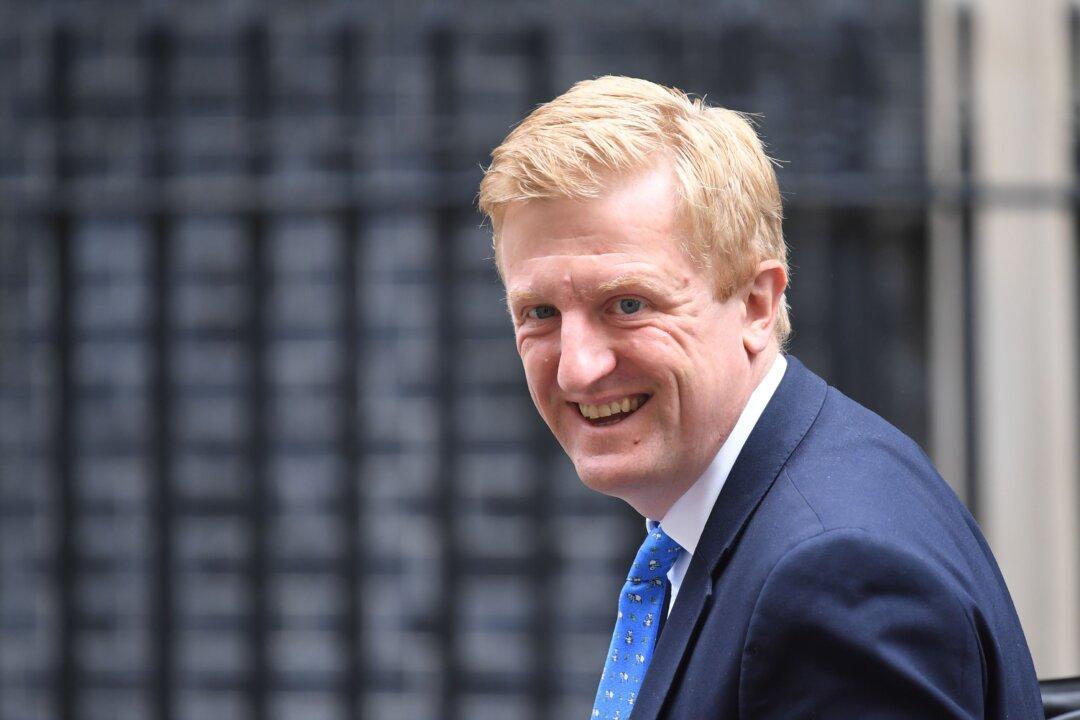
UK Culture Secretary Oliver Dowden walks on Downing Street in central London on June 17, 2020. Daniel Leal-Olivas /AFP via Getty Images
Museums shouldn’t be bullied by left-wing campaign groups into removing statues and rewriting history, UK Culture Secretary Oliver Dowden said.
Dowden highlighted the risk of museums being “pushed around by unrepresentative campaign groups, principally from the left.”





